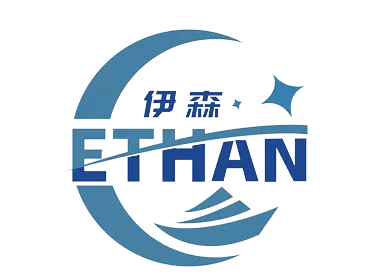Understanding the Importance of Choosing the Right Global Freight Forwarder
Finding a trustworthy global freight forwarder matters a lot for companies relying on international shipping to keep their supply chains running smoothly. The best freight forwarders handle more than just moving cargo from point A to B they know the ins and outs of customs rules, paperwork nightmares, and how to cut costs without sacrificing quality. When businesses pick the right logistics partner, packages actually show up when promised, intact and at prices that don't break the bank. This makes all the difference in day-to-day operations and keeps customers happy rather than frustrated waiting weeks for products they paid for months ago.
In the competitive landscape of global trade, understanding the key factors involved in selecting a freight forwarder can save time and reduce risks. Letâs explore these essential considerations in detail.
Experience and Industry Expertise
Evaluating Years of Operation and Track Record
The amount of experience a freight forwarder has tends to show how well they can manage complicated logistics situations. When choosing a partner, businesses need to find companies that have successfully handled shipments comparable to theirs regarding size, cargo type, and where they're going. The length of time a company has been operating matters too because it speaks volumes about whether they'll stick around and deliver consistent service over the long haul. Companies that have weathered various market conditions usually know what works best through trial and error.
Sector-Specific Knowledge
Different industries face unique challenges, such as handling temperature-sensitive pharmaceuticals or oversized machinery. Freight forwarders with expertise in specific sectors are better equipped to manage regulatory compliance and special handling requirements, reducing the risk of shipment delays or damage.
Global Network and Carrier Relationships
Access to a Broad Carrier Network
A key advantage of working with a global freight forwarder is their access to multiple carriers across air, sea, rail, and road transport. This network enables flexible routing options, competitive pricing, and the ability to manage unforeseen disruptions by switching carriers when necessary.
Established Partnerships for Cost Savings
Long-standing partnerships with carriers allow freight forwarders to negotiate bulk rates and priority services, passing cost savings and benefits to their clients. This relationship also facilitates smoother customs clearance and handling at ports.
Technology and Transparency
Real-Time Shipment Tracking
Modern freight forwarders leverage advanced logistics platforms that offer real-time tracking and shipment visibility. This transparency helps businesses monitor their cargo status, anticipate potential delays, and coordinate downstream operations more effectively.
Digital Documentation and Communication
The ability to handle documentation electronically simplifies customs clearance and reduces errors. Freight forwarders who provide digital portals for communication and reporting enhance operational efficiency and improve client experience.

Customer Service and Support
Responsiveness and Communication
Reliable customer service is essential in freight forwarding. Businesses should assess how promptly and effectively a forwarder responds to inquiries, solves problems, and communicates shipment updates. Strong communication helps prevent misunderstandings and fosters trust.
Support for Customs and Compliance
Customs regulations can be complex and vary by country. Freight forwarders with dedicated compliance teams help clients navigate these rules, prepare accurate documentation, and avoid costly penalties or delays.
Pricing Structure and Contract Flexibility
Transparent and Competitive Pricing
Understanding the pricing structure is vital. Some freight forwarders offer all-inclusive rates, while others charge separately for documentation, customs clearance, and storage. Businesses should seek transparency to avoid hidden fees and make informed decisions.
Contract Terms and Scalability
Flexible contracts allow businesses to scale their shipping volume up or down without penalties. This adaptability is particularly important for growing companies or those with seasonal fluctuations in demand.
Value-Added Services and Additional Capabilities
Warehousing and Distribution Support
Many freight forwarders provide warehousing, inventory management, and last-mile delivery services. Partnering with a forwarder offering these integrated solutions can streamline supply chains and reduce the need for multiple vendors.
Risk Management and Insurance
Forwarders who assist with cargo insurance and risk assessment add an extra layer of protection. This is critical for high-value shipments or goods prone to damage during transit.
FAQ
How do I verify a global freight forwarder's credibility?
Check for industry certifications, customer testimonials, and partnerships with recognized carriers. Asking for references and reviewing case studies also helps gauge reliability.
What questions should I ask before signing a contract with a freight forwarder?
Inquire about pricing details, transit times, liability coverage, customs expertise, and support services. Clarify any terms regarding delays or damage claims.
Can a freight forwarder help with customs clearance?
Yes, most global freight forwarders have specialized teams to manage customs documentation and compliance, ensuring smoother import and export processes.
How important is technology in freight forwarding?
Technology enhances shipment visibility, communication, and operational efficiency, making it an essential factor when choosing a modern freight forwarder.
Table of Contents
- Understanding the Importance of Choosing the Right Global Freight Forwarder
- Experience and Industry Expertise
- Global Network and Carrier Relationships
- Technology and Transparency
- Customer Service and Support
- Pricing Structure and Contract Flexibility
- Value-Added Services and Additional Capabilities
- FAQ


